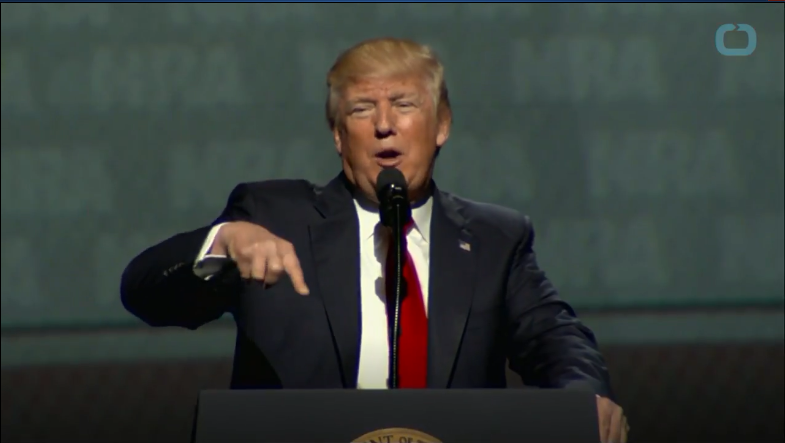U.S. President Donald Trump sparked anger in France and Britain by suggesting looser gunlaws could have helped prevent deadly attacks in Paris in 2015.
美國總統(tǒng)唐納德·特朗普暗示更寬松的槍支法律有助于防止2015年巴黎的致命襲擊,這一做法招致了法國和英國的憤怒。
He linked a wave of knife crime in London to a handgun ban.
他把倫敦持刀犯罪與禁槍令聯(lián)系起來。
In a speech to the National Rifle Association on Friday, Trump mimicked the shooting of victims at Harris rampage.
周五,在全國步槍協(xié)會(huì)的演講中,特朗普模仿了哈里斯槍擊案中射殺受害者的姿勢。
He said if civilians had been armed it would have been a whole different story.
他說,如果平民攜帶武器,情況就會(huì)完全不同。

The French government issued its strongest criticism of Trump since he took office.
法國政府發(fā)表了自特朗普執(zhí)政以來最強(qiáng)烈的批評(píng)。
This at a time when President Emmanuel Macron has been reinforcing bilateral ties following a state visit.
這是在埃馬紐埃爾·馬克龍總統(tǒng)進(jìn)行國事訪問加強(qiáng)雙邊關(guān)系后發(fā)生的。
The Foreign Office said in a statement, France expresses its firm disapproval of President Trump's comments about the Paris attacks on November 13, 2015 and demands that the memory of the victims be respected.
法國外交部在一份聲明中表示,法國堅(jiān)決反對特朗普總統(tǒng)有關(guān)2015年11月13日巴黎襲擊案的言論,請尊重受害者。
譯文屬可可原創(chuàng),僅供學(xué)習(xí)交流使用,未經(jīng)許可請勿轉(zhuǎn)載。












